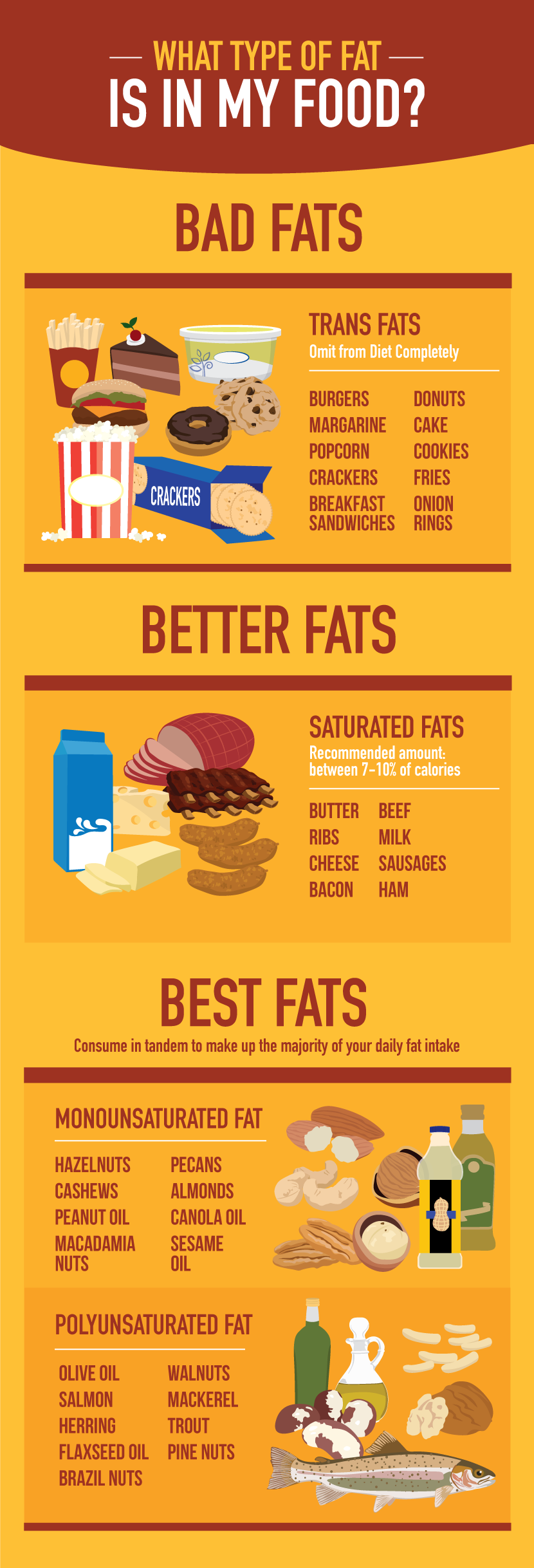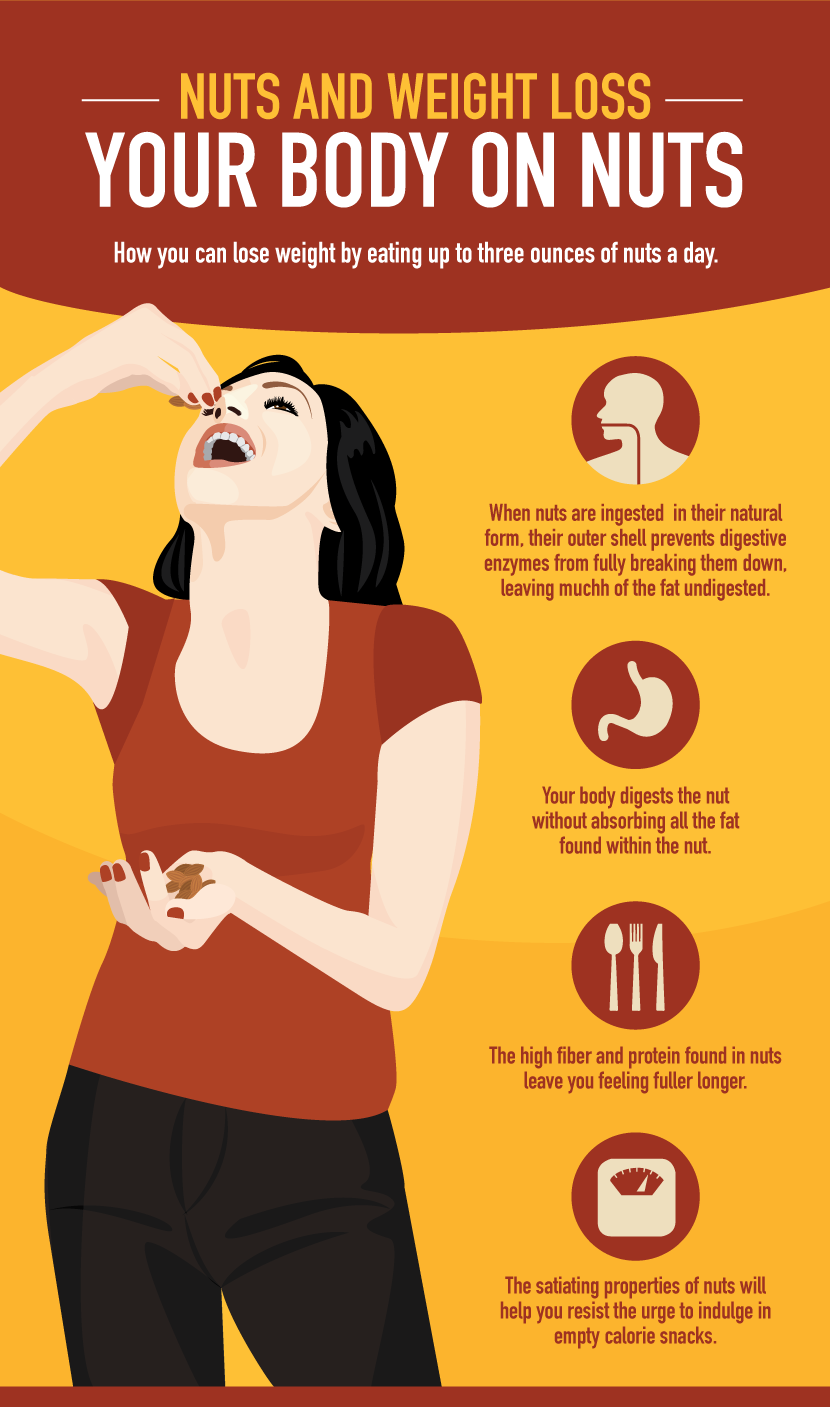Cracking the Case on Nuts
For years, people have been hesitant to eat high-fat foods for fear of gaining weight. As a result, many have shunned nuts from their diets because they contain a high amount of calories from fat. Recently, however, dieticians have dispelled this myth and have begun promoting the consumption of nuts as a key element in a well-balanced diet.
All Fats are not Created Equal
There are foods with high fat contents that should be avoided – such as processed meat, fast food, pizza, chips, or anything out of a deep fryer. But there are also foods with equally high calories from fat that should be eaten on a regular basis, such as avocados, olive oil, and nuts. Now you’re probably thinking this doesn’t make sense: Isn’t fat the same no matter where it comes from? Don’t worry, you aren’t alone in your confusion. Many people don’t realize there are good fats and bad fats. Let’s explore both:

Bad Fats
Trans Fat: Also knowns as trans fatty acids, these fats are created by adding hydrogen to vegetable oils to make them more solid. While they tend to make food taste better (think deep-fried anything), they are also used to increase shelf life and create desirable textures. Trans fat should be avoided at all costs. It is so bad for your health, the Food and Drug Administration has removed it from the list of GRAS (Generally Recognized as Safe) foods.
These are the types of fats you should eat sparingly. These are known to clog arteries, raise your cholesterol levels, and increase your risk of heart disease and cancer.
Better Fats
Saturated Fat: This is typically sold at room temperature and often found in animal-based products. The American Health Association (AHA) recommends consuming less than 7% of your daily recommended calories from saturated fat.
Best Fats
Monounsaturated Fat: This is common in the Mediterranean diet. It is liquid at room temperature and solidifies when chilled. Monounsaturated fats have proven health benefits, such as lowering your risk of breast cancer, aiding in arthritis relief, and even weight loss.
Polyunsaturated Fat: Similar to monounsaturated fat, it is also liquid at room temperature. This healthy fat is often found in plant-based oils and foods. These fats can assist in lowering your risk of heart disease, and they may help reduce your risk for type 2 diabetes.

Let’s go Nuts!
If you are trying to lose weight, lower your cholesterol, or simply eat a more balanced diet, be sure to include nuts. Just a single handful can have a powerful, positive impact on your diet. Nuts are high in fiber, protein, and – most important – good fats. The fiber and protein will leave you feeling full and can help curb cravings. People who eat nuts daily tend to feel satiated and, as a result, eat fewer calories throughout the day. The monounsaturated and polyunsaturated fats will help regulate cholesterol, reduce your risk of cancer, and deter type 2 diabetes. They even help keep skin hydrated and plump – meaning you will look younger.
Nuts high in monounsaturated fats include macadamia nuts, almonds, pecans, cashews, and hazelnuts.
Nuts high in polyunsaturated fats include walnuts, pine nuts, beechnuts, and Brazil nuts.
But What About the Calories?
Looking at the calorie count for a single serving of nuts might make you question whether the health benefits are worth it. And to that I say, yes! They are. Counting calories has been around for decades and is the go-to method for dieters monitoring and restricting their intakes. However, this way of thinking about and tracking your diet must be dispelled because not all calories are created equal. I am not saying you should toss the calorie-counting books out the window; I am simply stating that it is important to make room for quality foods in your diet, despite their high calorie counts.
What is a calorie? To calculate calories, scientists place food in a machine called a calorimeter and burn it. The heat given off by the food is absorbed in water and measured. One calorie is the amount of energy needed to raise the temperature of one gram of water by one degree Celsius.
While this method has proved to be accurate when determining calories of easily digestible foods, researchers now say the calories in nuts have been inaccurately defined. A study conducted by nutritional scientist David Baer, indicates that nuts, such as almonds, are more difficult to digest because of their high fiber content and rigid outer shell. This means your body must use more energy to break down the almond. It was also observed that lipids from the nuts were not completely absorbed by the body. Considering these two factors, scientists now agree there has been an inflation of calories in nuts by upward of 25%.
Keep in Mind: This information is based on whole, raw nuts. If you are consuming crushed nuts or nut-based spreads and oils, the calorie counts presented on the labels are accurate. Also, the degree of inaccuracy in calorie counts varies based on the nut. Pistachios are mislabeled but only by a margin of 5.8%.
Are You Sure I Won’t Gain Weight from Eating Nuts?
If you still aren’t convinced that adding nuts to your diet will help you lose weight, let’s talk about digestion. During the study mentioned above, three groups were assigned different nut intakes per day. One group didn’t consume nuts, and the other two ate 1.5 ounces and 3 ounces, respectively. When examining the stools of the groups consuming nuts, scientists realized there was a significant amount of undigested fat, protein, and carbohydrates. This incomplete digestion has been attributed to the rigid outer shell on the nut; it creates a barrier between the digestive enzymes and fat inside the nut. This incomplete digestion paired with the full feeling you get eating from nuts is the reason dieticians and scientists agree that adding nuts to your diet will not cause weight gain.

The next time you are craving a candy bar or greasy burger, reach for a handful of nuts. Not only will they leave you feeling full, but you can be confident that with each bite you are doing something great for your body.
http://www.heart.org/HEARTORG/
http://bodyecology.com/articles/6_benefits_monosaturated_fats.php
http://well.blogs.nytimes.com/2015/04/27/on-food-labels-calorie-miscounts/
https://www.ncbi.nlm.nih.gov/pmc/articles/PMC3257681/
Embed the article on your site

























































